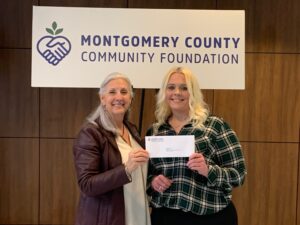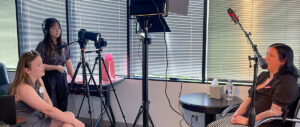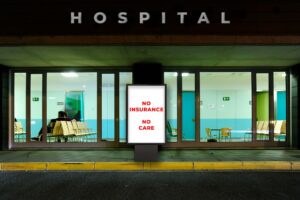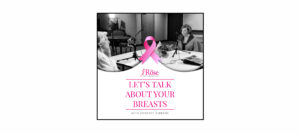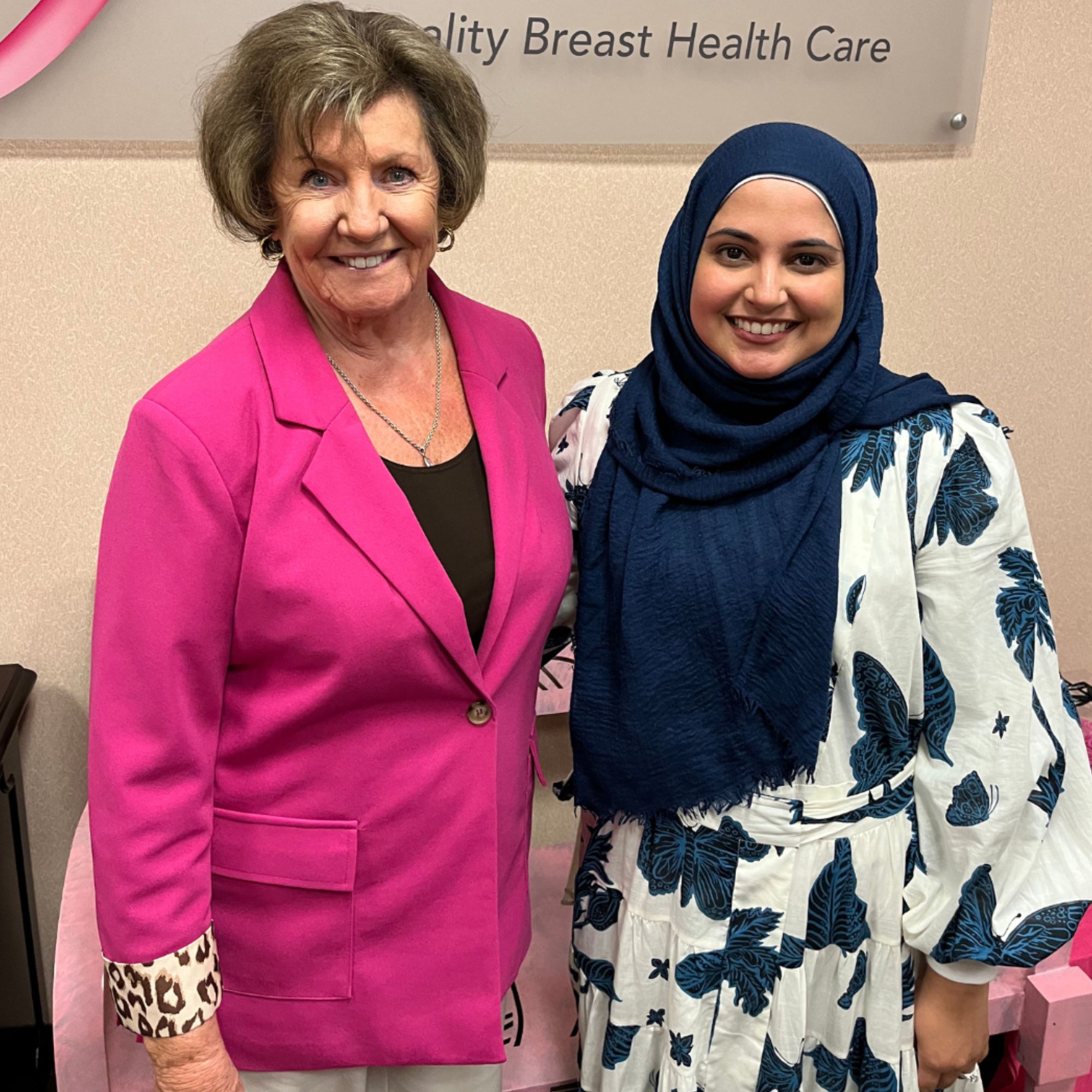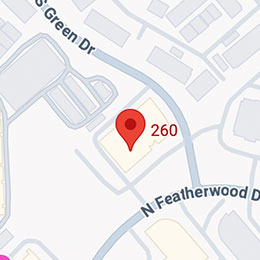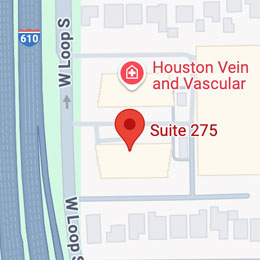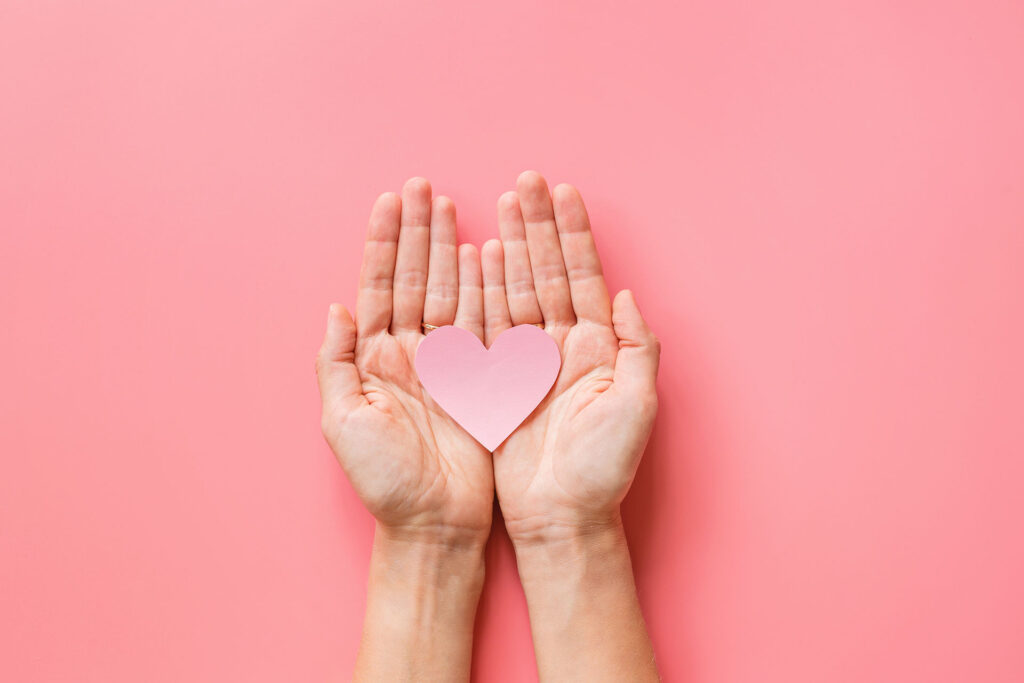Dorothy: [00:00:00] Let’s Talk About Your Breast, a different kind of podcast presented to you by the Rose Breast Center of Excellence and a Texas treasure. You’re going to hear frank discussions about tough topics and you’re going to learn why knowing about your breast could save your life. Join us as we hear another story and we answer those tough questions that you may have.
Aeliya: My name is Aeliya Jaffar and I am a mother, I’m a wife, daughter, I’m also a clinical pharmacist and I’m soon to be a high school teacher.
Dorothy: Oh my goodness. And then you have another title.
Aeliya: I’m also a breast cancer survivor.
Dorothy: So Aeliya, tell us a little bit about your journey.
Aeliya: Okay. So I discovered a large lump in my left breast while I was taking a shower in February of 2021.
[00:01:00] I had given birth to my third daughter in March of 2020. So at this point she was 11 months old and I was in the process of weaning her. Um, my mom happened to be visiting us because my dad was in India. My grandmother had actually just passed away two days prior. And I, um, had my mom at my house because my dad was in India with my grandmother.
And this is of course, you know, the peak of the COVID pandemic. And my dad and my grandmother both had COVID and both had been hospitalized in two different hospitals over there. So the state of our house was quite tense .
Dorothy: Oh my gosh, yes.
Aeliya: Yes. And we were in grief and I did go ahead and tell my husband immediately and I told my mom and both of them said, make an appointment with your obstetrician.
So I made an appointment and I got in three days later and she did a physical exam and told me that she did not think that it was presenting like what she has seen cancer. Um, to present as and that I [00:02:00] could basically go ahead and wait it out and get my two COVID vaccines because she was seeing that a lot of women post COVID vaccine were having swollen lymph nodes and I did not know about those new guidelines and took her word for it.
Um, went ahead and went back home happily, um, and told my family that my doctor does not think that this is due to cancer and that it is not urgent for me to get a mammogram and that she thinks it could be related to weaning the baby. So go ahead and pump and see if that helps. So I pumped a couple of weeks later because I’m like, well, this is still here and nothing came out and it actually hurt a lot.
So. My COVID vaccines happened to be scheduled at that time, so I went ahead and followed her advice, I got vaccinated, and I started noticing in April that the lump is getting harder, and that, um, there’s a dent forming in my breast. And when I googled that symptom, it immediately popped up that that’s a sign [00:03:00] of breast cancer.
So of course I called the office back, and she went ahead and saw me again, and still said that she doesn’t think that it’s cancer. But I can go ahead and get a diagnostic mammogram if it’ll make me feel better.
Dorothy: How old were you then?
Aeliya: I was 36.
Dorothy: 36. Okay.
Aeliya: And I, so of course I’ve never had a mammogram at this point.
So they didn’t order it stat. They ordered it for May 6th. This was in April. So May 6th is my daughter’s birthday, my eldest daughter’s. So I still remember I went in and. They told me that I will definitely need to get a biopsy and that they would actually prefer to do a contrast induced, um, mammogram, um, based on what they’re seeing.
So, surprisingly, they did not order it stat either. I didn’t have the biopsy until May 18th, and that day when I got there, they told me, um, the physician that came in to do the biopsy, he said that I’m actually seeing things that are lighting up in both your breasts, and my recommendation would be to get a [00:04:00] bilateral.
You know, set of biopsies. And of course, this is still pandemic. So my husband’s not even there in the room. I’m by myself. And I feel like healthcare providers had become really compassionate at this time. Um, they would, you know, the, the female technician, she held my hand and they were very compassionate, but he was basically like, you know, if whatever I’m seeing in your left side comes out to be what I suspect, then you are going to know what’s in there.
You’re going to need to know what’s going on in the right breast as well. So my advice would be to get both done. So I did. And then, uh, four days later, my OB GYN scheduled a telephonic call with me and my husband. Uh, we were at home, thankfully, so we could be together. Because men, you know, the husbands were still not allowed into the OB practice.
They were only allowing, um, one person, one patient at a time. So, uh, then she shared the news that she was shocked and appalled that it was indeed cancer in both sides. And it was the same diagnosis. It was invasive ductal carcinomas. estrogen and progesterone positive.
Dorothy: So here [00:05:00] you are, 36 years old, three girls, and the youngest is now a year and a half, a year and four months?
Aeliya: She was one year and two months old.
Dorothy: Oh my goodness. And you’re facing breast cancer. Plus, you are dealing with another whole set of emotions. You want to share that? Because this is something I think is the most fascinating part of your story. You know, we, we know women often have postpartum depression, but for you, this was almost a negating factor with your doctor.
Oh, she’s just anxious. She’s, yeah. So talk just a little bit about how that played into everything that was going on with you. Plus the, the grief you were having with grandmother and everything.
Aeliya: Exactly. It was a compounded effect. Um, I, this was my third child. Um, my previous two pregnancies, I definitely had baby blues, but they, you know, by week four, about a month in, you kind of settle down and you really start to [00:06:00] enjoy your time with the baby and, um, your hormones regulate this time.
She was born on March 10th and that was. Um, the Monday in Fort Bend County that they started changing the policies because that Friday or Thursday is when they discovered the first man in Fort Bend County had COVID. Um, and I remember I went on Saturday to the hospital to get some blood work done and I come back on Monday to deliver and everybody’s, you know, saying, well, we’re wearing masks.
Um, and you can only have two visitors the entire time and I’m like, okay, what’s happening, you know? So everything was changing actually rapidly as she was born. She was my first baby that wasn’t allowed to stay in the nursery. She had to come into my room. I only stayed for one night after her delivery because they didn’t know what to do.
They’re like, there’s this virus and we don’t want the babies, you know, to be exposed to each other. We want them close to the mother. My children’s school shut down. The week that I had her so now all of a sudden I have a four year old who was in preschool Who is home and definitely I [00:07:00] have an eight year old who at that time was in third grade We don’t know what’s going to happen with her school.
The county is trying to figure out what to do eventually like after a month I think they decided that we’re going to transition all the kids to being an online school at home So suddenly I have three children at home indefinitely, um, and, you know, you’re not allowed to meet anyone in the family, right?
First they had a rule of ten, if you remember, that you can have ten close people that you’re, you know, around, um, in your COVID bubble. Then they decided that you shouldn’t meet anyone outside your household. So we’re going through, like, this up and down constantly of what is safe and what is not. And I really think that that put me on high alert, which a lot of mothers who have postpartum depression and postpartum anxiety, that’s a huge part of that disease process, that you are constantly having intrusive thoughts anyway, that harm can come to your child and that You’re almost on the defense in your mind constantly, like what if some harm comes to my [00:08:00] baby, what if I do something to harm my baby, what if, you know, this virus comes in and something happens to her, something happens to the rest of us, what if it happens to me, and then she doesn’t have, you know, a mother to protect her, so it’s a lot of intrusive thoughts and, um, I was trying to —. figure out how to manage those. So at my six week appointment, she had a screening, my OB GYN, and she was really, really good about this. She screened me for both of them, and after I answered the questions, she came in the room and very compassionately, she was like, you are Seem to be experiencing both, you know, postpartum depression and postpartum anxiety.
And you’re a pharmacist, so you know that taking sertraline is safe, um, for nursing mothers. And I told her, well, because I’m a pharmacist, I know the caveats that there are some women who they might be baseline depressed, but then if you men and women start an antidepressant. If it doesn’t suit you, it can actually make you suicidal.
It can actually make your depression a lot worse. You [00:09:00] could be that person, and in a COVID world, if you’re that person, you don’t have, you’re not surrounded by people to pick up on that. You know, my husband owns a small business, so he was working six days a week, you know, and trying to balance family when he would come home, but At this point, I’m like, it’s just me and the kids, like, all day long, so if you’re telling me that something can potentially make me more depressed and anxious, I really don’t want to take a chance on that.
But, eventually, I did. I did, um, about three months later, two months later, um, my dad was— And my mom at that point were like, you probably would benefit from taking the medicine. We really are seeing, you know, a different side of you. This isn’t you and we’ve seen you as a mother. And sometimes I am grateful that this happened with my last child because I think if it had happened with my first child, it would have scared me to probably have more kids to be very honest.
Dorothy: Oh, absolutely.
Aeliya: It was that scary. Um, and so, um,
Dorothy: That was very [00:10:00] brave of your dad to say. Hey, you need help. I mean it. Yes that that was just a part of your story that I thought wow Wow, you know, you can get so caught up in whatever’s going on with yourself
Aeliya: and you know, my parents are first generation Indian immigrants my dad came to the US for initially he did a master’s degree then he did a PhD My mom married him in 1981 and then they migrated same thing with my in laws They came in the 1980s to the United States after living in Pakistan. So for our parents, um, especially talk therapy is not a part of the culture. You do not expose your problems to the public and you also, um, try to use gratitude to God and religion to overcome difficulties, which is valid on many levels. [00:11:00] However, the value of therapy and mental health interventions is a It is a piece of the puzzle. It is a necessary piece of the puzzle. Because if I’m trying to practice gratitude, and I’m trying my best to function, but I’m still not able to at my potent my highest potential, then why would I not utilize those resources?
Um, and so my dad actually always says that one of his regrets of Parenting is that maybe having a professional intervention could have helped with some of our problems. Maybe it could have helped him. And I think that You know, he’s, um, able to self reflect at that level, which is not easy for a 70 something year old man from India to do, even though he’s educated.
So every, you know, in our culture, a lot of people are educated. A lot of people are physicians, or pharmacists, or they’re a healthcare provider, but they still don’t want to get help themselves, and they [00:12:00] still don’t want, you know, to be labeled that. And that’s what people fear, that if you get psychiatric help, or you say, I need mental health Help you’re crazy. You know, is there an element of crazy in this person? And I think that’s so detrimental because getting help is so powerful and it’s such a meaningful intervention. And it completely turned my life around even during this pandemic period, this 2021 year, then we went into 2022, um, and.
Between 2020 and 2021, I feel like those interventions helped me just with me and the kids. And then this was the same methodology, the same tools that I used to help me through cancer treatment, which was again a catastrophe. So. If you can advocate for your spouse, if you can advocate for your children, you can advocate for even your parents, then you are changing so [00:13:00] many lives and you are valuing that life.
And there’s nothing to be embarrassed about. And that’s honestly why I’m talking about it. That’s one of my goals, not only to break the taboo around talking about breast health for Muslim women and for women in our culture, but also to talk about mental health. It’s okay.
Dorothy: It is okay. And I think that is so important for women to hear, for our listeners to hear.
We, we really will never know what COVID did to us. It’s going to be many, many years before we understand the real psychological impact of that time. And here you were dealing with much more than just the worry of that time. So that that really is important for people to hear. We’ve stigmatized this for way too long.
Yeah, it’s time.
Aeliya: I agree. And you owe it. I felt like I owed it to my children. I wanted to be the best mother I could possibly be.
Dorothy: Wow, that’s strong.
Aeliya: Yes, I owed it to my [00:14:00] marriage. I owed it to my parents and my in laws, and thankfully, my mother in law and my sister in law were also, uh, I have to give them a lot of credit.
They were big advocates. Um, when I told them what I was going through, they were both, um, able to explain certain things to my spouse, for example. Um, they understood, and they, They rallied around me and thankfully we had, because they live close by, um, we did have a COVID bubble with them, with my sister in law and her family.
And with my parents in law, um, my parents live closer to Fort Worth, Dallas. So they would come and visit, you know, and we would visit them. Um, but on a daily basis, I had, you know, my husband’s family close by and that made a huge difference to have. People understand what you’re describing and to say, yes, like, go ahead and get an intervention, do something, you know, and we will also back you up.
We’re here for the kids. We’re here for you. That really carried me through.
Dorothy: So that was part of your support system. But I was fascinated with the [00:15:00] way you described your other support system when you were sharing what was going on with you with the pharmacy moms.
Aeliya: Oh, yes, the pharmacist moms group. Yes, so.
Initially when I was diagnosed, I was diagnosed on a Friday and very quickly my extended family found out, um, on both sides. But I knew that I needed to find a group of people who don’t know me personally but who understand cancer. And at that time I didn’t know about any of the Facebook support groups.
I hadn’t been to MD Anderson. It took a few weeks to get in Um, and so I reached out to this group that i’m on facebook and it’s a pharmacist mom’s uh, facebook group and I just asked on there that I was just diagnosed, you know with this. I have three young children These are their ages have any of you experienced cancer As a parent or have any of you been the child of a parent that had cancer and how would you advise me to tell my children And how would you [00:16:00] advise, in general, like, how to cope? I got so many responses and people are just willing to come in and support and even if they hadn’t experienced anything, they just said that they were praying and they were thinking about me and then women who had experienced it, it was, it’s, it’s not something you feel happy about that other people have gone through this, but it does give you a lot of hope, right?
When other mothers are saying, yes, I’ve had breast cancer in my thirties, my children were small. Um, this is what I experienced and. Just, and then it showed me that there was a variety of treatment options that cancer is so vast in terms of treatment and you can have the exact same diagnosis as the person sitting next to you and have a completely different treatment plan.
So it gave me a lot of insight up front and having it in writing, it gave me like a source to just go back and look at sometimes when I wanted to be cheered up or when I wanted encouragement or when I needed to reference it. Because somebody said that they had chemo first and then they had their mastectomies and then, you know, they were [00:17:00] taking a certain type of therapy Um, it really was you know an informed group of women who really like to share most of them are very open Um, and they enjoy we enjoy exchanging opinions, you know on that and facts Um, and so that was the first glimpse into what support and what like a support group can really do for you
Dorothy: And so many women are hesitant about seeking that kind of Help out or being in a support group, even if it’s not really really a support group, just a group of supportive people beyond family But it really gets down to being able to talk to someone who’s been there And I I had that’s fascinating about you were able to go back and read it It was in you know, it was documented a different way How interesting is this time where it wasn’t just sitting around talking you were you were getting facts that you could go back and review.
when anyone goes through any disease, our minds don’t work the same way. We don’t think [00:18:00] rationally, we don’t retain things. And so, especially with everything that was going on with you, that had to be very difficult.
Aeliya: That was, I felt like I had layers of brain fog. Um, I felt like, because I quit my clinical pharmacist job in October 2019 while I was pregnant with Marzia, um, the baby’s name is Marzia, so I had, um, gestational diabetes during that pregnancy very early on, and, um, so, and that was another thing my OB did a great job on was, you know, putting me in for an early, um, glucose test and making sure that I, Had good care with a high risk physician and I, um, decided that, okay, if I’m going to have a third child, then I’m going to take a little absence from work, not knowing that the pandemic was looming and that, you know, that would actually work out really well and that I wouldn’t get cancer afterward.
So I had stepped away from work. So I already felt like, okay, now I’m transitioning from being a working mom to a stay at [00:19:00] home mom. Um, that was one layer of a little bit of brain fog and then you have the baby and then you have a mother’s know that you have a different type of brain fog once you give birth and you’re sleep deprived all the time.
Um, and then when you add cancer on top of it, it was, it was hard to. Keep my thoughts clear and to limit my emotional response and try to look at things through like a clear lens, right? Like a logical lens because we have multiple sides of us. We have our emotional side and we have our logical side. Um, and with cancer, you’re never given good options.
It’s always like, which terrible choice would you like? You know, would you like to do a combination mastectomy and then a lumpectomy in your right side? Or would you like to do a double mastectomy? And we don’t know if you’re going to need chemotherapy, but we’ll let you know a month after your surgery.
And you definitely need radiation on your left, but you might need it on your right too, so we’ll let you know.
Dorothy: I, [00:20:00] that is the best description I’ve ever heard of what happens waiting through waiting through this treatment process. Yes.
Aeliya: And you’re by yourself because it’s COVID and MD Anderson has extremely strict policies, which they need to.
And I’m glad that they do. But even today, if you go to MD Anderson, you will wear a mask and you will, you know, answer questions about whether you’ve been exposed to somebody with COVID symptoms, which is absolutely fair to everyone who’s immunocompromised who’s coming there. However, when it’s you, and you’re sitting there, and you’ve just been diagnosed, um, and you’re fearing for your life, um, to not be able to hold somebody’s hand, um, is very difficult.
Dorothy: Oh, yes. Now, you, you’re a healthcare provider, a pharmacist for 10, 12 years at that point. But still, this was a whole new world to be exposed to. There were lots of things you didn’t realize.
Aeliya: Yes, absolutely. I was joking with you that we had this oncology unit and we actually, because I went to University of Houston, we had all the Texas Medical [00:21:00] Center clinical pharmacists come in and teach us in our third year and our fourth year.
And we had this entire group of clinical pharmacists come from MD Anderson, and they did this six week unit. And, you know, you learn all these things from an academic perspective, but it’s very different when it is you’re talking about patient XYZ and it’s not about you. And then suddenly, um, you’re the patient.
And it had been a good, yeah, like a decade since I had gone over that information. Three kids later and I’m just like, you know, scratching my head like what are they talking about? Like why do I have to have surgery up front? Why can’t I have chemo? Why is that not even an option? And so I think the good thing about MD Anderson is that they are an academic center and so they do explain things really well and they knew that I wanted to know more than the average patient and I wanted to be taught.
As we were going along so they did a thorough job that way and I think that they’re the resources that [00:22:00] were there Were very helpful meaning like I didn’t just need a surgeon and an oncologist and a radiation oncologist I went to a lot of physical therapy. I went to pain management because I had prolonged pain after my surgery.
I also saw the psychiatrist at md anderson and I didn’t hesitate to Say that I need Other providers on my care team and thankfully they had a lot of resources. Furthermore, after I was done with everything, I did see the integrative medicine department. So I talked to a physician and she went over a lot of things related to diet and future cancer prevention.
Then I spoke to a dietitian. They also have acupuncture and massage therapy where they have to mitigate some of the side effects, right? Like from tamoxifen, like if you’re having hot flashes, they actually recommend using some of these. Integrative medicine approaches everything is not, you know, take this pill and that’ll help your side effects I’ve seen the gynecologist [00:23:00] at MD Anderson to follow up on some side effects from tamoxifen so I give them a lot of credit that way they have a lot of Resources they have a and they’re in tuned with what you’re describing Symptomatically, right?
They don’t blow anything off. The reason I feel passionate about The Rose and It’s kind of interesting and a little bit contradictory because my residency and pharmacy was actually for managed care So, I, um, did my residency for a private insurance company that now they all get like Medicare contracts, right, and Medicaid contracts.
So, I worked for a large hospital system in Houston as well as an insurance company essentially. My husband is a small business owner, like I told you, so I was the one who provided us with health insurance for several, almost a decade through my jobs. And luckily in pharmacy, there’s a lot of good part time options and they even provide health insurance for that.
And so that worked out really well, but that was one of the decision or [00:24:00] deciding factors for us that if I’m going to quit, then what is he going to do for health insurance? So, we, um, signed up for a private plan that started on May 1st of 2021 and I got diagnosed on May 21st. They, and I knew, I knew as soon as they said you’re diagnosed, after, you know, I cried and I had the feelings, again, the logical part of me was like, oh no, they’re going to think that I knew about this and lo and behold, they called and started this huge paper trail.
With all my physicians and they dug through tons of medical notes and they disclosed it that how did you not know that you have a lump that is Nine centimeters of masses. I mean the single tumor was like six centimeters in my left breast But you have such a massive tumor How in the world did you and your doctors not know and i’m like I it’s in the notes I did [00:25:00] tell my doctor I have followed And when you asked me, because, you know, they did like an interview, basically, when we signed up for the private insurance plan, which is completely different than if you’re an employed person and you sign up for insurance.
It’s very straightforward. In this case, we actually got on the phone. We did this interview and they’re like, what, you know, health issues do you have? And I’m sitting there and telling them that, Oh, I don’t, you know, I’m very healthy. I have asthma. And, you know, I have high cholesterol. But other than that, I’m good.
Um, and they’re like, you know, what is happening? And so they, um, checked with my Kelsey Siebold physicians, they checked with my obstetrician, they went back and looked at everything, and in the end they were like, yeah, it wasn’t you, it was the doctor who made a mistake. So um, they covered everything in the end, but you know when you see those bills.
Dorothy: Oh, it’s horrifying.
Aeliya: It’s horrifying and it’s continuous. It is continuous. I, the problem once you’ve had cancer is that now every symptom and ache and pain is evaluated to see if it’s a metastasis, which is [00:26:00] so exhausting emotionally, but when you add in the time it takes to get all these tests done and the amount that it costs just to get two MRIs, you know, for my spine, cause I was having back pain last year.
So they wanted to check, um, that costs, they billed like $70,000. And when you look at, you know, resources like the Rose that will. Not only get diagnostic mammograms and diagnostic procedures done for women, um, even if they don’t have insurance, they’ll pay for it. And then if they find out that the patient has cancer, that they’ll take care of that patient.
That means a lot to me. And so that’s partly, it’s ironic, but I’ve, I’ve kind of gotten more into the nonprofit space, like with another organization called TRS. Um, they also do a lot for. patients that are uninsured. 90 percent of the patients at the pharmacy that I volunteer at, they are uninsured.
Dorothy: And I think, I think you’ve covered so many points about being uninsured.
For one thing, many of the [00:27:00] resources that you had available to you as you were going through breast cancer and the treatment. are not available to uninsured women. They, they, usually when we get them into some program, they’re getting basic, they’re getting care, but all of those other things that can help so much during this time, and especially alleviate pain, which you had a lot of pain, and that’s something that, oftentimes gets overlooked with our cancer patients.
You know, it’s, oh, well, yeah, they think they have pain, but you really did. And then what you’re saying about that emotional worry of what if this isn’t covered? What if they decide that they don’t want to cover this? Huge, it is really huge. First thing our ladies say who are uninsured when they are told they have breast cancer is how am I going to pay for this?
That’s in our insured ladies. Usually it is my gosh. Am I going to survive? You know, it’s it’s a [00:28:00] whole Different mindset when you’re living on the edge all the time. So thank you for sharing that that’s that’s important for people to hear.
Aeliya: Thank you. Thank you for all the work that you do. I Hope to you know participate more.
I really loved the last two years. We attended the Hats and Henna High Tea fundraiser So we hope to continue to participate in events from the rose and collaborate
Dorothy: So you have several goals in doing this podcast. You want to be sure that Muslim women understand that there are many different facets to this, and especially to appreciate the mental health issues that can come along.
What else would you like to stress in that, that area?
Aeliya: You know, I had done counseling with a psychologist who was also, um, he’s also a preacher in our religion. After I had done many sessions with him, we also did marriage sessions, and I think that’s also important to talk about, that this affects the healthy spouse.
As much as it affects the sick one, [00:29:00] and their voice is valuable too. And it’s important, it’s important to talk about the things that are bothering. The healthy spouse, the burden on the healthy spouse. I mean, these are realities of having a chronically ill family member. So pay attention to what’s going on with the healthy people in the home because they’re being equally affected. And Then I would also say that I did do a cancer journey life coach Series like for 10 sessions with somebody who has experienced cancer and then she’s a certified life coach as well because talking to someone Um, from a religious and a psychological angle was imperative, but also talking to somebody who understands breast cancer specifically, and also a female did help me in a different way.
So I use a multifaceted approach and I think the culmination of all of that was that I was able to, to really, you know, push forward and to overcome [00:30:00] a lot faster than other wise I would have .
Dorothy: And I’m not even sure people realize there are life coaches out there that are dedicated to that area and can help you get through. That’s, that’s another important thing for our listeners to hear. I do remember and some of your stories and your blog is beautiful.
Aeliya: Thank you so much for taking the time to read it.
Dorothy: I could not. I hope you will let us share it with the listeners, and it is, it is just so compelling. But where you had that point in your, in your treatment where you just thought that you had been bad, or that you weren’t a woman of faith anymore, it was the crying five times a day, do you— yeah, speak to that just a little bit, because many, many women have this kind of issue, no matter what faith we’re in.
Aeliya: Yeah, so it’s a huge dichotomy in our teachings and what people tell us sometimes that the very, very [00:31:00] good get tested the most in this world, and they get the most trials and tribulations because they’re so patient and because they’re so good. Then there’s a group of people that focus a lot more on the very bad people get what they deserve.
So, I was Sitting there, you know, trying to navigate in my mind. Am I super good or super terrible? Like which one am I and What do I do with this information now that you know, it’s presented itself like okay Like do I deserve to have the surgery like do I deserve to have cancer do my and then it didn’t make sense because I’m Like how do my children deserve to not have a mother like could you say that could you say that a child or children?
They’re diagnosed with cancer. You look at the st. Jude’s commercials and Do any of those children deserve that? Is that something that a person, you know, a child who is sinless, because I think all religions agree that children are innocent and they’re sinless. How can they, um, be, you know, suffering in that manner?
So I did, I questioned a [00:32:00] lot and I, you know, really went back and because, um, my Life coach that is the cancer life coach. She actually had me do like a Gallup poll It’s on strengths and it’s like this entire deep dive into your strengths and one of mine is context The first one is belief. One of them is context and another one is about learning.
So I needed some context I really wanted to understand what is this telling me? What am I supposed to learn from this? What could this mean? Is this something that God created or is this something that man created and that You know, it’s in our environment, and so this is something we’re going to see more of.
Um, and it has nothing to do with God trying to punish everyone, you know. Um, and so that did, that took me a lot of time to process, and I did, that is actually one of the reasons I wanted to talk to somebody who is both versed in psychology and religion. And his approach was, like, take all the negative out of your mind and focus on the positive [00:33:00] of God, His love, your role as a mother, what this, you know, in terms of your afterlife, what it, you know, would do for you.
And it’s nothing negative, right? All of that is positive. So it was really necessary because I think that. Anytime I was listening to anyone say anything negative, it was making me spiral and, and go in a really bad direction. Like, that never helps. Like, you don’t want to be around people during this time period who are making you feel worse.
Dorothy: No, absolutely not.
Aeliya: And so it’s really important to understand, you know, and I think all religions at this, you know, Um, level have that concept of, you know, what does suffering mean and what can it entail? And there’s a, uh, she’s a doctor of divinity, Kate C. Bowler, and my mom bought two of her books and she’s a stage four colon.
She’s currently a survivor, thankfully. And so she did talk about that, that because they believe in like that, um, [00:34:00] concept where doing good produces good. And so if you do evil, it produces evil. And so what does that mean when you get like a stage four diagnosis and you’re told you have two years to live?
Did that mean you were bad?
Dorothy: Such a complex subject and so interesting that you really decided to take deep dives into it and really understand what was going on. But I think just talking about that is another part of this whole breast cancer survivorship that we don’t even think about. You know, those thoughts are going on.
And in your head while you’re still trying to recover or do treatment and that’s very brave of you to share all that with us because this is a part that many women will not share. We can talk surgeries and we can talk how it was diagnosed and all of those things, but that mental, emotional crippling that can happen is, is just as important to heal and to [00:35:00] acknowledge even.
Aeliya: It is, and if you want to thrive post treatment, then you need to have, um, all of that, um, addressed. I think that you need to be honest about it, and it’s okay if you’re having a few doubts here and there. Clarify them. Don’t allow that to become like a demon that consumes you.
Dorothy: Doubts are everybody’s problem . I mean, you know, but when you’re, when you’re going through treatment, it makes it more.
So now you’re three years out, two years out.
Aeliya: I am a two years out. So I was diagnosed May, 2021. And so it’s 2023. My surgery was, um, end of June. Of 2021. So you could say that was the day that I was cured, um, because everything came back that it was, you know, margin free. I had one micro metastasis, but that was removed anyway, that lymph node.
So thankfully I’m two years out.
Dorothy: Yes. And your prognosis is great, but you continue to. To encourage women to take care of that emotional and mental health too And that is that uh, we I [00:36:00] really appreciate you sharing at such a honest deep level.
Aeliya: Thank you so much.
Dorothy: Thank you. Yes, for being with us and we’re going to share some of your other thoughts with our listeners.
And we just know you’re going to do great.
Aeliya: Thank you so much, Dorothy. It was such an honor to be here.
Dorothy: So that wraps it up for today. And don’t forget, we’re doing a episode every single day. You’re going to get your daily dose of Let’s Talk About Your Breasts during the month of October.
Post-Credits: October is the month of pink and for the Rose, a Breast Center of Excellence.
That means we’ll be airing podcasts every day in October to celebrate Breast Cancer Awareness Month. We’ll be sharing everything from men who have had breast cancer to what happened What happens when you are pregnant and diagnosed with cancer? Be sure to share with family and friends because there’s a little something for everyone.
To find out ways to help The Rose, visit our website at therose.org. Remember, self care is not selfish, it’s essential.[00:37:00]

